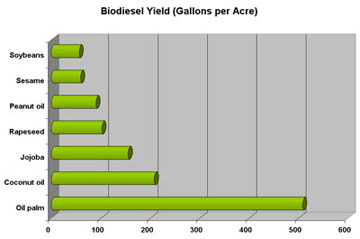Carbon savings from biofuels quantified
Carbon savings from biofuels quantified
mongabay.com
May 12, 2006
A British fuels company has quantified carbon dioxide emission savings made through the sale of biofuels.
Greenergy Fuels Ltd, which supplies biofuels retailed through supermarket forecourts, said it supplied 17.1 million liters of bioethanol and biodiesel, saving more than 40,000 tons of carbon dioxide emissions during the first quarter of 2006. The firm compared this savings to taking more than 50,000 average family cars off the road for three months.
“We are pleased to be championing the biofuels sector as we work with our customers to bring biofuel blends to forecourts and fleets alike,” said Andrew Owens, Chief Executive of Greenergy. “With our ongoing investment in new UK production facilities and the expansion of our fuels distribution network we look to a future where biofuels deliver an increasing percentage of the fuels mix in the UK.”
Greenergy’s annoucement comes as interest is biofuels is accelerating due to high oil prices and concerns over climate change. Biofuels are fuels that are derived from biomass like plants — including sugar cane, corn, oil palm, and sugar beets — and cow manure. Unlike fossil fuels—such as coal, petroleum, and natural gas, which are finite resources—biofuels are a renewable source of energy that can be replenished on an ongoing basis. In general, biofuels are biodegradable and, when burned, have fewer emissions than traditional hydrocarbon-based fuels. Typically, biofuels are blended with traditional petroleum-based fuels, though it is possible to run existing diesel engines purely on biodiesel, something which holds a great deal of promise as an alternative energy source to replace fossil fuels. Further, because biofuels are generally derived from plants, which absorb carbon from the atmosphere as they grow, biofuel production offers the potential to help offset carbon dioxide emissions and mitigate climate change.

|
|
RELATED
High oil prices fuel bioenergy push High oil prices and growing concerns over climate change are driving investment and innovation in the biofuels sector as countries and industry increasingly look towards renewable bioenergy to replace fossil fuels. Bill Gates, the world’s richest man, has recently invested $84 million in an American ethanol company, while global energy gluttons ranging from the United States to China are setting long-term targets for the switch to such fuels potentially offering a secure domestic source of renewable energy and fewer environmental headaches.







